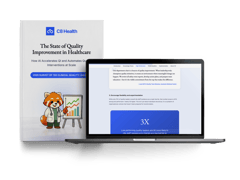
Exploring the Power of CRM Automation in Healthcare
In the healthcare setting, your customers are both your patients and healthcare providers. This means that a good customer relationship management (CRM) platform benefits patients and healthcare teams alike.
The healthcare sector generates vast amounts of data every day, but without proper automation and integration, it often remains siloed and inaccessible. Finding automated CRM solutions can increase efficiency and result in happier patients. Below, we'll explore just how powerful a CRM solution can be for your healthcare needs.
Meet the Expert
Mical DeBrow is an accomplished healthcare leader and clinician with extensive expertise spanning pharma, healthcare payers and providers, and healthcare information technology.
What is CRM Automation in Healthcare?
A CRM system in healthcare serves a similar purpose to its classic counterpart in other industries but with a twist. Instead of focusing on sales and marketing, healthcare CRMs prioritize managing patient relationships and optimizing care delivery. It takes the place of manual emails, automating alerts, reminders, and messages for improved communication with patients.
When it comes to in-house processes and administration, the "customer" in the relationship management process is also your team: doctors, nurses, administrators... In this case, systems that let you communicate seamlessly in real-time can enhance their day-to-day responsibilities, making patient care more efficient.
We can maximize this efficiency through automated workflows, which:
- Collect hospital best practice guidelines and protocols.
- Organize knowledge for an intuitive user experience.
- Ensure information is reliable and up to date.
» Learn how to transform clinical practices with automated workflows.
5 Benefits of CRM Automation in Healthcare
CRM platforms consolidate important patient and medical information onto a single interface, ensuring healthcare teams can access this knowledge instantly. This enables well-informed, timely decisions at the point of care. Here are the main benefits of a unified platform:
1. Enhanced Predictive Analysis
CRM automation has the potential to do more than just gather current medical and transaction information. It can use advanced analytics to predict future risks. For example, machine learning can recognize a high chance of someone returning to the hospital based on their vitals after leaving. This helps in taking preventive actions.
» What's the future of patient care? Here's how AI and tech are changing healthcare.
2. Real-Time Alerts for Clinicians
Following this predictive analysis, clinicians and care coordinators can get real-time prompts highlighting the vulnerabilities that have been identified. This allows for proactive outreach, tighter post-op monitoring, and expedited follow-ups to prevent deterioration and reduce the likelihood of another inpatient stay.
Consider a patient who has undergone hip replacement surgery. The system alerts his healthcare team in real-time, prompting them to check on him, monitor him recovery closely, and schedule follow-up appointments. This proactive approach helps prevent potential issues and reduces the chance of the patient needing to return to the hospital.
3. Physician Empowerment
Automated CRM platforms can reduce physician burnout. They organize patient data clearly so doctors, nurses, and administrators avoid tedious chart reviews. Simple profiles show the most relevant information upfront. Tools also provide guidelines to help recommend treatments. This cuts down on frustrating tasks like taking redundant notes or checking multiple data sources.
Easier access and better workflows let physicians focus their expertise on delivering care. Physician burnout risks are lower when technology handles the tedious clerical tasks instead.
Our latest white paper covers how knowledge management can empower physicians when utilized properly. Download it today to learn more.
» Looking to increase wellbeing? Uncover how to address staff burnout in healthcare.
4. Patient-Centric Support
Patients experience a number of advantages from online portals:
- They benefit from online portals with integrated records, facilitating self-management and providing easy access to their health information.
- Automated questionnaires surface unreported symptoms, fostering meaningful discussions during visits and improving the overall patient experience.
- Machine learning capabilities can match individuals to specialized treatment plans based on attributes and outcomes of similar past cases, ensuring personalized care.
5. Improved ROI
The core objectives of automated CRM systems revolve around enhancing patient outcomes and reducing costs.
Implementing system-wide automation requires significant upfront investment. However, the effort pays off quickly, thanks to better data and savings. Preventing just a few avoidable hospital visits or catching billing problems early on creates major cost reductions. In healthcare, even small efficiencies add up over time.
Once deployed, optimized CRM automation boosts productivity and informs better decisions across the organization. This leads to higher-quality patient care and financial prudence even years later. The costs of implementation balance out, but the benefits for care remain.
» Exploring ways to maximize your ROI? Here's how knowledge management can reduce costs.
From Fragmented Data to Automated Insights
From communication to administration, when certain areas of your workflow are automated, it means you can focus on the things that matter most: patient care. By choosing a CRM tool that offers automated functionality, you can select what tasks you leave up to technology and which you and your healthcare team pay attention to personally. This allows for greater efficiency and staff wellbeing.


